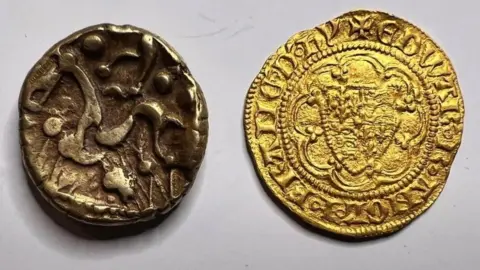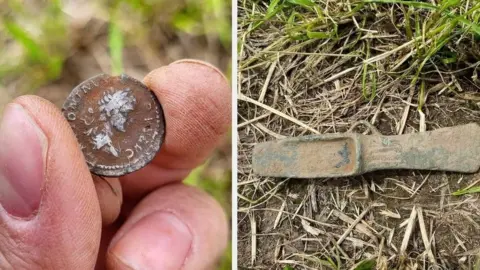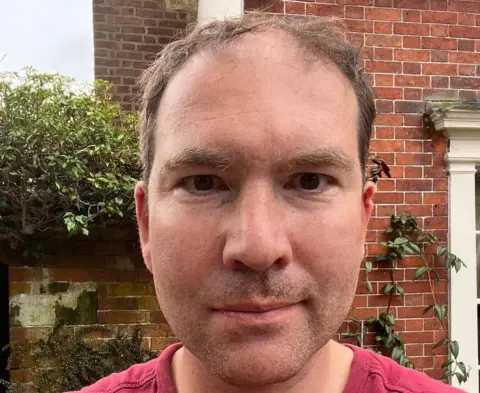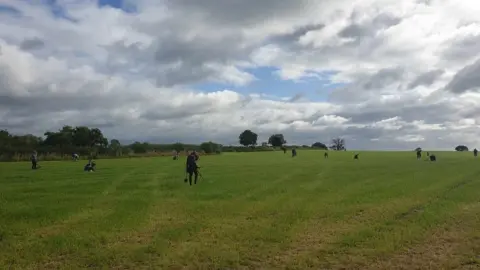Detectorist's delight after unearthing gold coins
 Jasper Hyde
Jasper HydeTwo gold coins separated by about 1,500 years of history have been found within 400 metres of each other in a farmer's field.
A Celtic gold stater, believed to date back to 65 BC, and an Edward III quarter noble from the 14th Century, were found in Sudbury, Derbyshire.
The discovery was made by Jasper Hyde, who described it as "just amazing".
Musket ammunition, Bronze Age axes and a Roman coin were also found in the 47-acre "field of dreams".
Mr Hyde found the coins during an organised group dig in the pasture field last Sunday.
"The first couple of hours [of the dig] were not good," Mr Hyde said.
"I set off again to look in another area of the field and about 30m away from the cars I got a good signal, dug it up and the glint of gold was there. It's a special find."
 David Mitchell and Danielle Lawrence
David Mitchell and Danielle LawrenceAnd an hour later, Mr Hyde, who has been metal detecting for about nine months, unearthed the Edward III quarter noble.
"As far as metal detecting days go [it] was about as good as it could be really," he added.
"There were some other amazing finds on the dig. It was a field of dreams."
Roger White, an honorary research fellow at the University of Birmingham, said the Celtic coin would have belonged to the Corieltauvi tribe, whose Roman capital was Leicester.
"The other coin is a good example of a coin used as a driver of the economy," he said.
"English coins, especially gold, had high purity, as the colour of this coin shows. It is also relatively unworn so had not been in circulation for a long time, or had been hoarded.
"It is highly unlikely that they were deposited together given that they date more than 1,500 years apart."
 Jasper Hyde
Jasper HydeMr Hyde made the discoveries at an event organised by metal detecting group Down To Earth Charity Digs.
Detectorists pay a fee, which is donated to charities nominated by the owners of the land where the digs take place.
Matt Probart, who set up the group, said the digs had raised more than £6,000 for good causes.
 Down To Earth Charity Digs
Down To Earth Charity DigsMr Hyde, who lives in Stone, Staffordshire, reported the gold coins to a finds liaison officer based at the University of Birmingham but was told they were not classed as treasure.
He hopes to display them at the Redfern's Cottage Museum of Uttoxeter Life shortly.
"It's not about commercial gain at all," Mr Hyde said.
"It's about the history and the enjoyment of finding things and sharing them."
He added: "It's hard to overexaggerate the joy on people's faces last Sunday when we found it [the coins]. It's a joint thing, everyone's out there looking."

Follow BBC East Midlands on Facebook, on Twitter, or on Instagram. Send your story ideas to eastmidsnews@bbc.co.uk.
